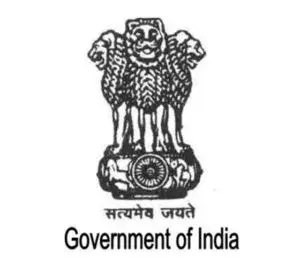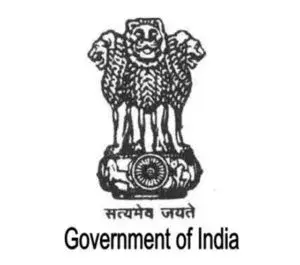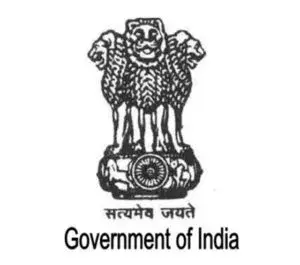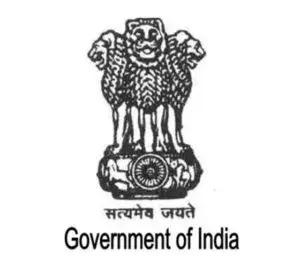India: Penalties for violating Trade License

Source: www.india.gov.in
Owing to significant development in the country in terms of incentivizing schemes, easy availability of resources and labour along with easier procedural formalities has made India one of the favoured destinations for business dealings. The Government has put in efforts towards the skill development and financial independence of the entrepreneurs in order to boost the economic structure of the country making it a more self-reliant production hub.
Trading in India…
Commercial transactions in India can be carried out by the entities using any of the corporate vehicles such as proprietorship, partnership, limited liability partnership, company, etc. An entity is allowed to carry out the fulfilment of its trade objectives provided the same as obtained due permission in the said regard.
Considering the nature of the business to be projects committed to be taken up, a corporate entity is required to obtain a Trade License. Issued by the local Government this license enables the entity to commence a new business. It is essential to be procured mandatorily before beginning manufacturing, exchange or storage of any activity/commodity.
The trade license certifies that the entity carrying out business operations adheres to the necessary legal requirements, safety and standard norms ensuring that no health hazard or nuisance by the conduct of trade. It ascertains the fact that no illegal or improper transactions occur in the name of trade by any entity. Valid for a period of one year this license requires renewal at annual basis.
Penalty for non-compliance
The trade license issued by the appropriate State authorities mandates obedience to the terms laid thereunder. There are various other provisions, rules, and regulations that are required to be followed by the registered entity. However, non-compliance to the same calls for penal provisions penalizing the license owner for breaking the law. Some of the penalties for contravention of the provisions of the trade license are stated below:
- If an entity violates the condition of license or cause nuisance in the neighbourhood or surrounding then the license might be cancelled or revoked;
- The entity committing a breach of the terms of the license or applicable laws shall make it liable to pay prescribed penalty;
- A fine of 50% of the license fees is levied in case of any delay in the trade license renewal process.
- An appropriate legal action can also be taken against the defaulting entity.
The fundamental principle behind the incorporation of stringent regulations for adherence is to discourage the conduct of any illegal activity and ensure the maintenance of discipline and clean environment. The freedom of trade commerce and intercourse of the entrepreneurs to do business should refrain from interfering with the public interest of right to life.
India: Necessity of Trade License

Source: www.india.gov.in
India has witnessed a sea-change in its economic growth over the years. The Government has devised numerous policies to facilitate the development of the entrepreneurial segment of the country. Introduction of schemes such as “Make in India” “Startup India”, “Standup India” and “Skill India”, has been made to increase the Gross Domestic Product of the nation. The development of the commercial sector in the country has been one of the primary agendas working towards the prosperity of India.
In order to commence a new business, an authorization from the local Government in the form of a Trade license is required. The license must be procured before beginning manufacturing, exchange or storage of any activity/commodity.
Importance
Trade license is a permission issued by municipal corporation and is essential due to the following reasons:
- monitors the operation of a specific business from a particular locality;
- ensures that any citizen is not adversely affected by health hazard or nuisance by the improper conduct of trade;
- ascertains adherence to the applicable rules, standards and safety guidelines;
- regulates business locations by way of putting constraints on people from running certain types of commercial activities;
- controls the number of specific responsibilities of the entrepreneur in connection with his business.
License Qualification
The following entities are required to be obtaina trade license before initiating their business transactions:
- Food establishment license: All activities related to consumable items and eating joints like hotels, restaurants, canteen, food stall, bakeries, sale of vegetables, meat, provisions store, etc.
- Industries license: Trades which use locomotives like manufacturing industries, factories, power looms, flour mills, cybercafé, etc.
- Shop license: Offensive and dangerous trades like barber shop, dhobi shop, timber wood, sale of fire wood, candle manufacturer, cracker manufacturer, etc.
Benefits
The advantages of obtaining trade licenses to the owners thereof are listed below:
- Restriction on the liabilities;
- Certification of the fact that no unethical or illegal practices are being carried on;
- Reinforcement of the business credibility.
In order to assure that proper and legal projects are procured and undertaken by the new business operators, the Government mandates for obtaining a valid trade license before the business comes into existence.
India: The Renewal of Trade License

Source: www.india.gov.in
India has increasingly becoming the new shoppers’ stop for commercial activities. With the Government’s approach to make the country a business hub many policies have been introduced facilitating the business development. Encouraging the citizens of the nation from being ‘job-seekers’ to ‘job givers’, investor friendly policies with reduced compliance burdens and cost-effective schemes have enabled India to be a nation of budding entrepreneurs.
Facilitation of the business transaction comes with the indispensable responsibility of the Government to ascertain that the same does not harm the citizens of the country
Trade License
Fostering the new businesses has always been promoted by the Government. Considering that the business activities carried on in the country are not hazardous or nuisance causing to the individuals of the nation, obtaining of a trade license has been necessitated.
Any business entity interested to commence a new business requires an authorization from the local Government in the form of a Trade license which is be mandatorily procured before beginning manufacturing, exchange or storage of any activity/commodity.
Trade license limits the liabilities of the license owners ensuring that no unethical or illegal practices are being carried on thus reinforcing the credibility of the business managers.
Validity of the trade license
The trade license issued by the authorities is valid for a period of one year and requires to be renewed annually. Subsequent to the expiry of this period, the entity is required to apply for renewal of the trade license in order to allow the business house to continue its operations in accordance with the applicable provisions of law in the country.
Renewal
Once a license is issued by the authority it has to be renewed periodically to ensure that the business is being carried out in accordance with local laws. In India, trade licenses are renewed in the period from January 1st to March 31st. Applications for Trade license renewal of such licenses must be made at least 30 days before the commencement of the year for which renewal is sought. Some of the documents required to be submitted for renewal of trade license are stated below:
- Original License copy;
- Previous year fees challans;
- Latest tax paid receipt.
For the purpose of smooth carrying out business operations, the operators are required to obtain a valid trade license. The law mandates that the conditions stated under the license should be duly complied with by the license owner. Further, before the exhaustion of the term of the license, a duty is casted over the licensee to ensure timely renewal of the same authenticating the fact that the same abides by ethical business practices and recognizes its obligations of adherence to the requisite safety and standard norms.
More Articles
- Brief overview of relevant ex-ante legislative instruments and policy reforms particular to digital markets in international jurisdictions
- Rights Issue
- India plans to shift from Minimum Wages to Living Wages by 2025
- Misleading Advertising Claims in India: A Legal Perspective
- Mechanism for calculating Net Winnings from Online Gaming- Income Tax
- Department of Industrial Policy and Promotion Grants Permission to Use the “Make in India” Logo



 Owing to significant development in the country in terms of incentivizing schemes, easy availability of resources and labour along with easier procedural formalities has made India one of the favoured destinations for business dealings. The Government has put in efforts towards the skill development and financial independence of the entrepreneurs in order to boost the economic structure of the country making it a more self-reliant production hub.
Owing to significant development in the country in terms of incentivizing schemes, easy availability of resources and labour along with easier procedural formalities has made India one of the favoured destinations for business dealings. The Government has put in efforts towards the skill development and financial independence of the entrepreneurs in order to boost the economic structure of the country making it a more self-reliant production hub. India has witnessed a sea-change in its economic growth over the years. The Government has devised numerous policies to facilitate the development of the entrepreneurial segment of the country. Introduction of schemes such as “Make in India” “Startup India”, “Standup India” and “Skill India”, has been made to increase the Gross Domestic Product of the nation. The development of the commercial sector in the country has been one of the primary agendas working towards the prosperity of India.
India has witnessed a sea-change in its economic growth over the years. The Government has devised numerous policies to facilitate the development of the entrepreneurial segment of the country. Introduction of schemes such as “Make in India” “Startup India”, “Standup India” and “Skill India”, has been made to increase the Gross Domestic Product of the nation. The development of the commercial sector in the country has been one of the primary agendas working towards the prosperity of India.